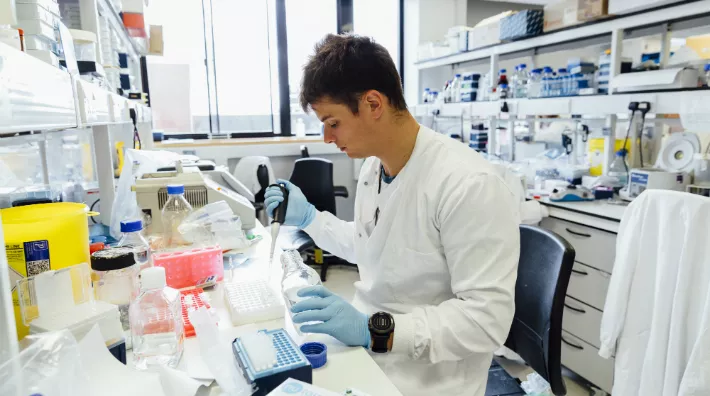
Despite the unprecedented challenges that 2020 presented, Diabetes UK has committed over £3 million to fund 22 new pioneering research projects across the UK. We’re supporting research that will change our understanding of how diabetes develops, how it’s managed, and how we can help people living with the condition to live better, more confident lives.
As a result of the coronavirus pandemic, the charity sector is facing huge drops in income. But thanks to our incredible and generous supporters, who have been relentless in their support and continued to donate both their time and vital funds to Diabetes UK, we’ve still been able to fund this crucial new research.
These new research projects will play a fundamental role in fulfilling the goals of our 2020-2025 strategy. We want to improve the quality of care available for people with diabetes, develop innovative new treatments that prevent or even cure the condition, see fewer people developing type 2 and gestational diabetes and see more people putting type 2 diabetes into remission. We can only do this through research, which is made possible by our amazing supporters.
In addition to our usual funding schemes, we also rapidly invested over £400,000 into five projects to help us understand more about how coronavirus affects people living with diabetes. We’re supporting research that will help us understand the impact lockdowns have on people’s risk of diabetes complications, as well as research that will shed light on why people with diabetes are at higher risk of experiencing more serious outcomes if they get coronavirus. These projects will give us the understanding we need to better protect and support people with diabetes in the future.
Here’s a snapshot of some of the exciting projects and remarkable researchers we’re supporting.
Stopping type 2
To prevent people from developing type 2 diabetes we need to better understand how the condition develops. With our support, Professor Calum Sutherland will help to shed new light on why insulin-producing beta cells go wrong in type 2 diabetes. He’ll examine how changing the levels and activity of particular proteins affects the health of beta cells and the amount of insulin they release. This research could give us a new way to protect people from type 2 diabetes.
Building better betas
The RD Lawrence Fellowship, named after our co-founder, gives rising research stars the support they need to become independent leaders in diabetes research. In 2020, we awarded the fellowship to Dr Ildem Akerman. She’s figuring out the best way to grow beta cells in the lab. One day, we hope these will be transplanted into people with diabetes to help them produce insulin. At the moment, lab-grown beta cells don’t work very well. Dr Akerman will aim to make better, more responsive beta cells, which are more like our own. Research like this could transform how we treat type 1 and type 2 diabetes. By helping people make enough of their own insulin again, it could spell the end of insulin injections and pumps.
Bringing new minds into diabetes research
We are committed to investing in the future of diabetes research and to encouraging the brightest minds into the field. In 2020, we invested nearly £300,000 into four new PhD students. Their projects will help find new ways to treat diabetic foot ulcers, identify markers in the blood that could show who is at risk of developing type 2 diabetes, and learn more about how type 2 diabetes develops.
Dr Elizabeth Robertson is Director of Research at Diabetes UK. She said:
“2020 presented huge challenges for everyone, but we’re grateful that we were able to continue invest in the future of diabetes research in the UK thanks to your support. We’re encouraging new graduates into diabetes research through our PhD studentships, providing crucial support for new diabetes researchers early on in their career, and funded exceptional new research fellows, whose projects could have a dramatic impact on the lives of people with diabetes. Along with our rapid response funding into coronavirus and diabetes, our investment in research in 2020 shows our continued commitment to a world where diabetes can do no harm.”
